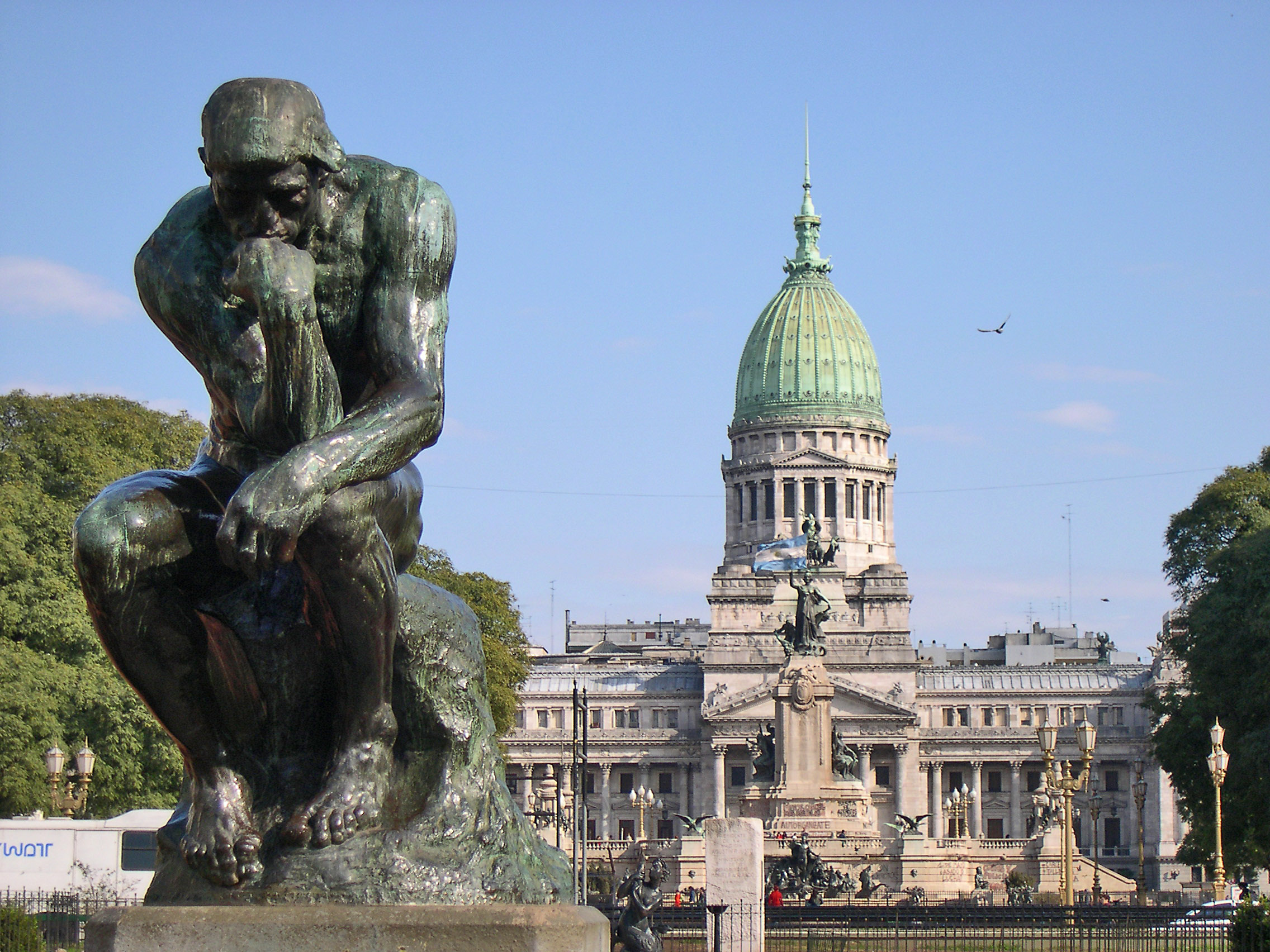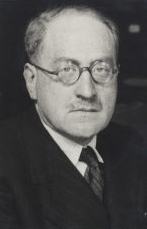|
World Congress Of Universal Documentation
The World Congress of Universal Documentation was held from 16 to 21 August 1937 in Paris, France. Delegates from 45 countries met to discuss means by which all of the world's information, in print, in manuscript, and in other forms, could be efficiently organized and made accessible. The Congress in the history of information science The Congress, held at the Trocadéro under "the auspices" of the Institut International de Bibliographie, was "the apotheosis" of a general movement in the 1930s towards the classification of the growing mass of information and the improvement of access to that information. For the first time in the history of information science, technological means were beginning to catch up with theoretical ends, and the discussions at the conference reflected that fact. Its participation in the Congress was one of the first projects of the American Documentation Institute (ADI). Participants in the conference discussed what has been more recently called "a ... [...More Info...] [...Related Items...] OR: [Wikipedia] [Google] [Baidu] |
Paris, France
Paris () is the Capital city, capital and List of communes in France with over 20,000 inhabitants, largest city of France. With an estimated population of 2,048,472 residents in January 2025 in an area of more than , Paris is the List of cities in the European Union by population within city limits, fourth-most populous city in the European Union and the List of cities proper by population density, 30th most densely populated city in the world in 2022. Since the 17th century, Paris has been one of the world's major centres of finance, diplomacy, commerce, culture, Fashion capital, fashion, and gastronomy. Because of its leading role in the French art, arts and Science and technology in France, sciences and its early adoption of extensive street lighting, Paris became known as the City of Light in the 19th century. The City of Paris is the centre of the Île-de-France region, or Paris Region, with an official estimated population of 12,271,794 inhabitants in January 2023, or ... [...More Info...] [...Related Items...] OR: [Wikipedia] [Google] [Baidu] |
Encyclopédistes
The Encyclopédistes () (also known in British English as Encyclopaedists, or in U.S. English as Encyclopedists) were members of the , a French writers' society, who contributed to the development of the ''Encyclopédie'' from June 1751 to December 1765 under the editors Denis Diderot and Jean le Rond d'Alembert, and only Diderot from 1765 to 1772. History The composition of the 17 volumes of text and 11 volumes of plates of the ''Encyclopédie'' was the work of over 150 authors belonging, in large part, to the intellectual group known as the philosophes. They promoted the advancement of science and secular thought and supported the tolerance, rationality, and open-mindedness of the Enlightenment. More than a hundred encyclopédistes have been identified. They were not a unified group, neither in ideology nor social class.Frank A. Kafker, ''The Encyclopedists as a Group: A Collective Biography of the Authors of the Encyclopédie'' (Oxford: Voltaire Foundation, 1996). Below s ... [...More Info...] [...Related Items...] OR: [Wikipedia] [Google] [Baidu] |
Documentation Science
Documentation science is the study of the wikt:recording, recording and Information retrieval, retrieval of information. It includes methods for storing, retrieving, and sharing of information captured on physical as well as digital documents. This field is closely linked to the fields of Library and information science, library science and information science but has its own theories and practices. The term documentation science was coined by Belgian lawyer and peace activist Paul Otlet. He is considered to be the forefather of information science. He along with Henri La Fontaine laid the foundations of documentation science as a field of study. Professionals in this field are called ''documentalists.'' Over the years, documentation science has grown to become a large and important field of study. Evolving from traditional practices like archiving and retrieval to modern theories about the nature of documents, novel methods for organizing digital information, and applications i ... [...More Info...] [...Related Items...] OR: [Wikipedia] [Google] [Baidu] |
Congress
A congress is a formal meeting of the representatives of different countries, constituent states, organizations, trade unions, political parties, or other groups. The term originated in Late Middle English to denote an encounter (meeting of adversaries) during battle, from the Latin '' congressus''. Political congresses International relations The following congresses were formal meetings of representatives of different nations: *The Congress of Aix-la-Chapelle (1668), which ended the War of Devolution *The Congress of Aix-la-Chapelle (1748), which ended the War of the Austrian Succession *The Congress of Aix-la-Chapelle (1818) *The Congress of Berlin (1878), which settled the Eastern Question after the Russo-Turkish War (1877–1878) *The Congress of Gniezno (1000) *The Congress of Laibach (1821) *The Congress of Panama, an 1826 meeting organized by Simón Bolívar *The Congress of Paris (1856), which ended the Crimean War *The Congress of Troppau (1820) *The Congr ... [...More Info...] [...Related Items...] OR: [Wikipedia] [Google] [Baidu] |
Douglas Waples
Douglas Waples (March 3, 1893 – April 25, 1978) was a pioneer of the University of Chicago Graduate Library School in the areas of print communication and reading behavior. Waples authored one of the first books on library research methodology, a work directed at students supervised through correspondence courses. Jesse Shera credits Waples’s scholarly research into the social effects of reading as the foundation for the approaches to the study of knowledge known as social epistemology. In 1999, '' American Libraries'' named him one of the "100 Most Important Leaders We Had in the 20th Century". Biography Waples was born in Philadelphia, Pennsylvania. Waples earned bachelor's and master's degrees from Haverford College in 1914 and 1915 and a second master's degree from Harvard University in 1917. After marrying Eleanor Jackson Cary and spending a year in France studying educational psychology, Waples returned to earn a doctoral degree from the University of Pennsylva ... [...More Info...] [...Related Items...] OR: [Wikipedia] [Google] [Baidu] |
Atherton Seidell
Atherton Seidell (1878 – July 25, 1961), a founder of the American Documentation Institute (predecessor of the American Society for Information Science), was a chemist and who became a strong proponent of the use of microfilm for the management of scientific information. As Peter Hirtle writes, "Through a series of seminal articles in ''Science'' in the 1930s and 1940s, Seidell established a theoretical justification for the use of microfilms as a means of facilitating scientific information exchange." With M. de Saint Rat, Seidell developed a simple, inexpensive ($2.00 in 1950), monocular microfilm viewing device, known as the "Seidell viewer," that was sold during the 1940s and 1950s. Seidell's studies of vitamins lead to numerous publications, including the book, ''Solubilities of Inorganic and Organic Compounds''. This text was first announced in a 1907 issue of the ''Journal of the American Chemical Society'', with the title, ''Solubilities of Inorganic and Organic Subst ... [...More Info...] [...Related Items...] OR: [Wikipedia] [Google] [Baidu] |
Paul Otlet
Paul Marie Ghislain Otlet (; ; 23 August 1868 – 10 December 1944) was a Belgian author, lawyer and peace activist; who was a foundational figure in documentalism, a precursory discipline to information science. Otlet created the Universal Decimal Classification, which would later become a faceted classification. Otlet was responsible for the development of an early information retrieval tool, the "" (RBU). RBU was used by the :fr:Institut_international_de_bibliographie, International Institute of Bibliography which later became the Mundaneum. Otlet wrote numerous essays on how to collect and organize and connect knowledge, culminating in two books, the ' (1934) and ' (1935). His ideas for information collection, storage and retrieval have been compared to early incarnations of the internet and search engines. In 1907, following a huge international conference, Otlet and Henri La Fontaine created the Central Office of International Associations, which was renamed to the Union ... [...More Info...] [...Related Items...] OR: [Wikipedia] [Google] [Baidu] |
Archival Appraisal
In archival science and archive administration, appraisal is a process usually conducted by members of the archive, record-holding institution (often professional archivists) in which a body of records is examined to determine its value for that institution. It also involves determining how long this value will last. The activity is one of the central tasks of an archivist, to determine the archival value of specific records. When it occurs prior to acquisition, the appraisal process involves assessing records for inclusion in the archives. In connection with an institution's collecting policy, appraisal "represents a doorway into the archives through which all records must pass". Some considerations when conducting appraisal include how to meet the record-granting body's organizational needs, how to uphold requirements of organizational accountability (be they legal, institutional, or determined by archival ethics), and how to meet the expectations of the record-using community. Wh ... [...More Info...] [...Related Items...] OR: [Wikipedia] [Google] [Baidu] |
Worthington C
Worthington may refer to: People * Worthington (surname) * Worthington family, a British noble family Businesses * Worthington Brewery, also known as Worthington's * Worthington Corporation, founded as a pump manufacturer in 1845, later a diversified manufacturer, merged into Studebaker-Worthington in 1967 * Worthington Industries, a metals manufacturing company founded in 1955 Places Canada * Worthington, Ontario England * Worthington, Greater Manchester * Worthington, Leicestershire United States * Worthington, Indiana * Worthington, Iowa *Worthington, Kentucky * Worthington, Louisville, Kentucky, a neighborhood * Worthington, Massachusetts * Worthington, Minnesota, in Nobles County * Worthington Township, Nobles County, Minnesota * Worthington, Missouri * Worthington, Ohio, in Franklin County * Worthington Township, Richland County, Ohio * Worthington, Pennsylvania * Worthington, West Virginia Other * Worthington, a clothing line from J. C. Penney * Worthington Col ... [...More Info...] [...Related Items...] OR: [Wikipedia] [Google] [Baidu] |
Henri La Fontaine
Henri La Fontaine (; 22 April 1854 – 14 May 1943), was a Belgian international lawyer and president of the International Peace Bureau. He received the Nobel Peace Prize in 1913 because "he was the effective leader of the peace movement in Europe." Biography La Fontaine was born in Brussels on 22 April 1854 and studied law at the Free University of Brussels (now split into the Université libre de Bruxelles and the Vrije Universiteit Brussel). He was admitted to the bar in 1877 and established a reputation as an authority on international law. He and his sister Léonie La Fontaine were early advocates for women's rights and suffrage, founding in 1890 the Belgian League for the Rights of Women. In 1893, he became professor of international law at the Free University of Brussels and two years later was elected to the Belgian Senate as a member of the Socialist Party. He served as vice chairman of the Senate from 1919 to 1932. La Fontaine took an early interest in the Interna ... [...More Info...] [...Related Items...] OR: [Wikipedia] [Google] [Baidu] |
Julien Cain
Julien Cain (10 May 1887 – 9 October 1974) was the general administrator of the Bibliothèque nationale de France (then called the Bibliothèque nationale) before the Occupation of France by Nazi Germany. In August 1937, Cain was one of the hosts of the first World Congress of Universal Documentation, held in Paris, which met to further the goal of creating a World Brain, an idea championed by H. G. Wells, and seen by some as one of the precursors to Wikipedia. In the summer of 1939, before the occupation began, he saw the impending danger clearly enough to order the evacuation of many of the library's most valuable items. Quite soon after the occupation began, Cain was removed from his post by the Vichy France, Vichy government because he was Jewish and replaced by collaborationist Bernard Faÿ. In February, 1941, Cain was denounced in Le Matin (France), ''Le Matin'' and arrested. He was detained in French prisons until January 1944, when he was sent to Buchenwald. He ... [...More Info...] [...Related Items...] OR: [Wikipedia] [Google] [Baidu] |




